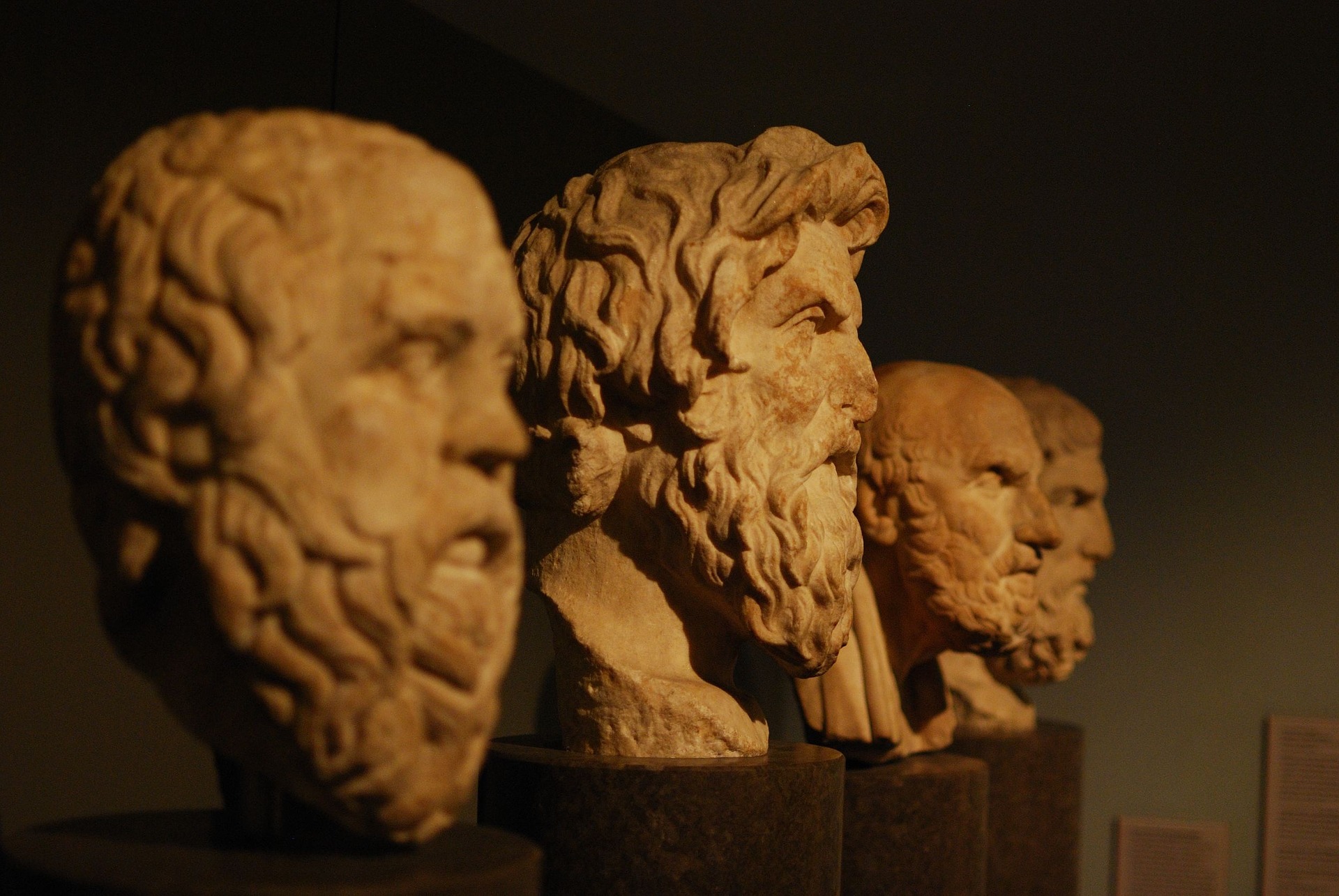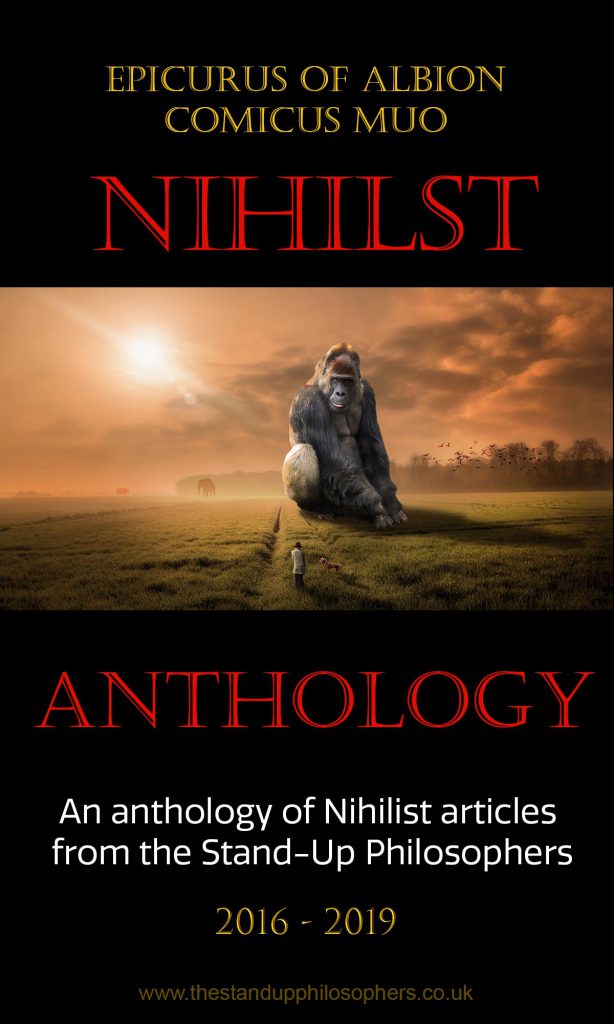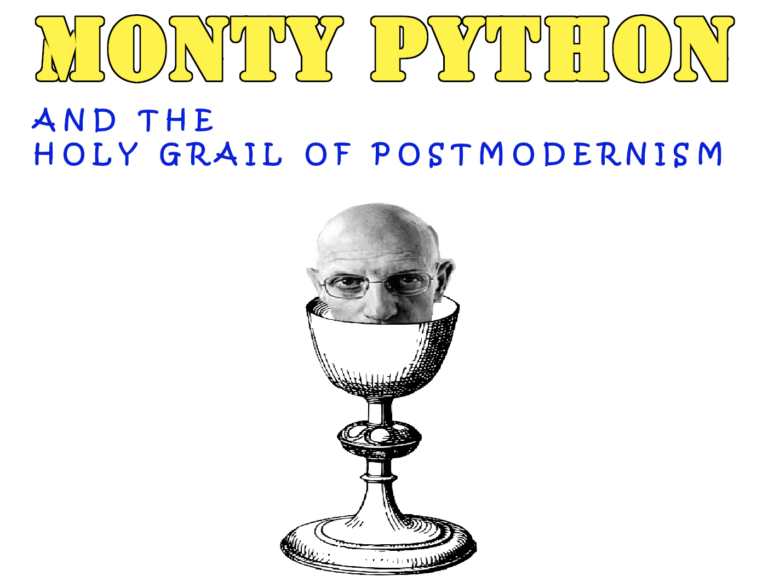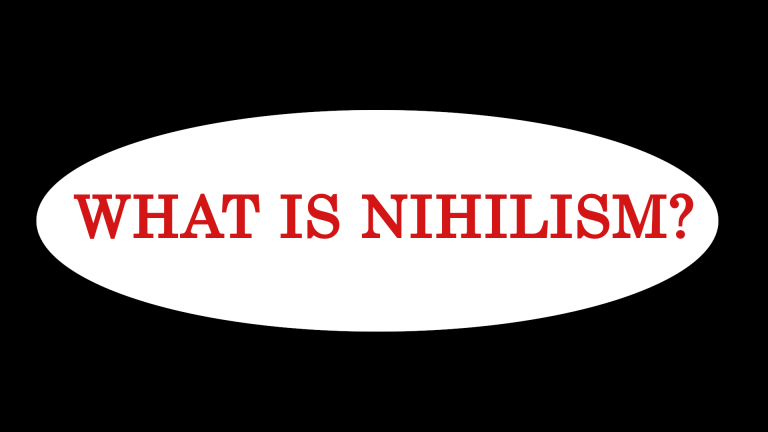
Let’s begin by saying something bold, philosophy is first and foremost about using the rational faculty that all human beings possess to determine personal happiness. In order to find happiness, we must discover what is true both within the near infinite depths our own minds and the greater material reality beyond our skins. The pursuit of truth in all of its forms is essential to philosophy but only because it’s the best guide to our own sense of personal wellbeing, fulfilment, and bliss.
The fact that philosophy underpins so much of our modern world is no accident, the pursuit of truth has brought along with it a detailed understanding of the laws of the physics that we routinely take advantage of whenever we switch on an electric light, send a rocket to the moon, or swallow a pill as ordered by our doctor. This leads many people to think that philosophy is chiefly an intellectual discipline bound up in the dusty and tired pronouncements of academics who have little connection to real life. This simply isn’t true…
Philosophy is first and foremost the answer to a human question and that question is ‘how do we live a good life?’ The entire history of philosophy and all the resultant scientific achievements it spawned are nothing more than an elaborate answer to this fundamental question.
The Good life
We can evidence this by looking at the works of the ancients such as Plato’s republic in which he lays out his personal vision of the ideal nation state as well as The Apology of Socrates in which he documents the trial of his beloved mentor who willingly and humbly accepted his fate (execution by drinking hemlock despite being able to escape) rather than undermine the city state of Athens that he so loved. Socrates understood that the polity of Athens had given him everything that he had ever needed to live a good life and simply refused to do anything that would undermine the existence of the state even when unjustly sentenced to death. Socrates lived his philosophy and that is the key to a good life. We can understand the entire world, have all sorts of esoteric and arcane knowledge but unless we apply our learnings to ourselves first and foremost, we gain nothing from it. Philosophy is personal development on steroids!
If you want further proof, there’s Aristotle’s Nicomachean ethics in which he discusses at great length how we should be behave in a well-ordered society. Then of course there’s the great Stoic and Epicurean philosophical schools dedicated to maintaining peace of mind and personal happiness through self-discipline, rational thought and simple pleasures. Marcus Aurelius used Stoic philosophy to guide his actions in the service of the Roman Empire which he so loved whilst protecting its borders from displaced barbarian tribes maintaining his peace of mind as he did so. Seneca in his letters to luculias offers moral guidance to the procurator of Sicily (a man in charge of the financial affairs of a roman province or territory). Cicero in his Tuscan disputations does the same albeit for a narrower audience. What is moral guidance for, if not to live a good life? These themes and much, much more have been echoed down the centuries by the likes of Musonius Rufus, Epictetus, Epicurus making their way into early Christian thought and the Neoplatonism of the Middle Ages. In other words, very old ideas about what it is to be a human being and how we should live kept on re-emerging time after time after time throughout the history of the last two thousand years culminating in a historical epoch known as the Enlightenment. The world we live in today is post enlightenment, in other words we reap all of its benefits such as electric light, medicines, central heating, automobiles and television sets, not to mention the internet.
If we go further afield, we then meet the Buddhists and the Zen practitioners who seek to achieve same sorts of goals of peace of mind via non-attachment to desire so that we might all live well in the absence of suffering which they recognize purely as a judgement of the mind. To live in the absence of pain is to live well, it’s a good life, so, philosophy is all about personal happiness, which is why we have existentialists and finally, nihilists. The latter philosophical discipline has been relegated by mainstream sources to be a pessimistic state of lethargy, misery and melancholia and as such the very opposite of a good life. Yet this doesn’t have to be the case, because whether we find something to be good or bad is entirely within our own judgement. The mind is a subtle thing that we can change whenever we like by simply choosing to be happy. We all experience existence as solitary beings in a vast and unfathomable cosmos that for all appearances seems to be uncreated and without purpose, we’re a part of the universe and as such are also uncreated and without purpose, hence the universe is nihilist and so are we, but we don’t have to be passive of spirit as a result we can choose to be absurdist, optimistic, sunny and happy as beautifully pointed out in Camus’s The Myth of Sisyphus by continuing to seek meaning even though we know that none can be found or simply be accepting of the fact that meaning is simply illusory, that it cannot be found, because it was never there to begin with, this being the path of the Happy Nihilist and is a philosophy that we strongly advocate at The Stand-Up Philosophers.
What is Happy Nihilism?
A happy nihilist simply accepts that the existence of the material universe and all of the rational conclusions that go along with that as truth and nothing more, i.e., it began in a big bang and will probably end in a heat death, that all human achievements and conditions will all be lost to time. We’re just a blip in the cosmos and should we or our entire civilization cease to exist the universe will carry on as before untroubled by our absence. In this material realm there is no physical evidence for the existence of a God or any meta-narrative that would provide a meaning to our existence. In the biblical book of Genesis Adam was a gardener created by God to attend to the plants and animals that existed peaceable within the paradise of Eden. Adam’s performance review didn’t go very well and human history, replete with suffering, woe and gnashing of teeth is the result! Yet it’s not all bad news, we the poor and dispossessed sons and daughters of Adam and Eve can enter a heavenly paradise after we die, provided of course that we follow all of God’s rule to do so. This biblical allegory is an example of a grand narrative that has no basis in fact, the idea that we can attain salvation through our actions is a meta narrative the existence of which isn’t supported by our observations of the world we live in. In other words, the meta narrative of Judeo-Christian living falls apart under rational inspection, a fact not wasted on the German philosopher Friedrich Nietzsche who wrote that:
“God is dead. God remains dead. And we have killed him. How shall we comfort ourselves, the murderers of all murderers? What was holiest and mightiest of all that the world has yet owned has bled to death under our knives: who will wipe this blood off us? What water is there for us to clean ourselves? What festivals of atonement, what sacred games shall we have to invent? Is not the greatness of this deed too great for us? Must we ourselves not become gods simply to appear worthy of it?”
Nietzsche’s point was that our pursuit of the good life, our examinations of truth, our rational investigations of the world had put an end to superstition, religious reverence, and supernatural awe, so much so that the peoples of Europe no longer believed in God in the truest sense of the word, the moral authority of the church was collapsing everywhere he looked. The writing was on the wall for Christendom, the final result of course would be despair, warfare, melancholia and the reinvention of God in other forms which is what we see today in many environmental and political movements.
“You have your way. I have my way. As for the right way, the correct way, and the only way, it does not exist.”
Friedrich Nietzsche
Through seeking that which we find to be good, we philosophers have found that goodness is merely a point of view, biologically ingrained within us via millions of years of evolution and whilst necessary for our species continued survival is entirely arbitrary when compared to the rest of the universe. All personal feelings of goodness and power come directly from our willingness to benefit or destroy the social hierarchies that we find ourselves existent within. This Will to Power is about as much as we can expect from a group of tailless primates that have learned how to shave and talk.
“Physiologists should think before putting down the instinct of self-preservation as the cardinal instinct of an organic being. A living thing seeks above all to discharge its strength–life itself is will to power; self-preservation is only one of the indirect and most frequent results.”
― Friedrich Nietzsche
So, if there’s any meaning to existence it is simply to be found within the Will to Power, is this the same as a cosmic will or the will of God, certainly not! Does it carry any weight beyond the confines of Old Earth, third planet of the Sol system, definitely not! Hence the only reality that can reliably be proven to exist is one of nihilism, how do we live well in the midst of this, once again I repeat that is what philosophy is for?
I have heard it said quite a few times that philosophy is not about living well, but instead it’s about high-sounding fancy ideas and I blame modern day academic philosophers for this misconception, many of which spend the bulk of their time pinning down or arguing of definitions or terms, but this is only done so that all may find consensus and agree upon that which they find to be true. The determination of truth whether that’s about the existence and nature of God, how we should live amongst our peers, the nature of the world that surrounds us all slot into place like numbers in an equation created to tell us how we should live and live well at that. Philosophy is not theoretical, although it does have theoretical components, philosophy is a human undertaking designed to solve human problems and that is it’s beauty and charm, don’t let anyone else tell you otherwise.
If you’d like to know more about Nihilism in short bytes and how it can help your personal happiness click below.


